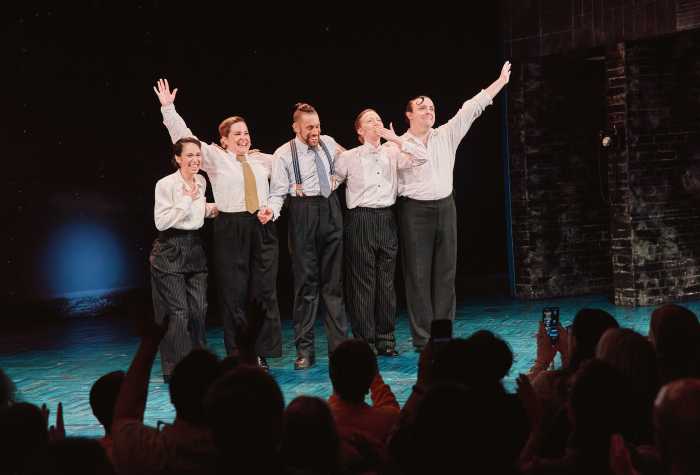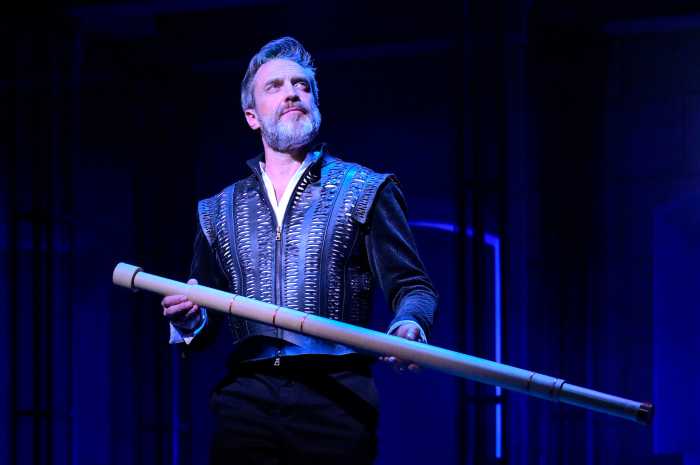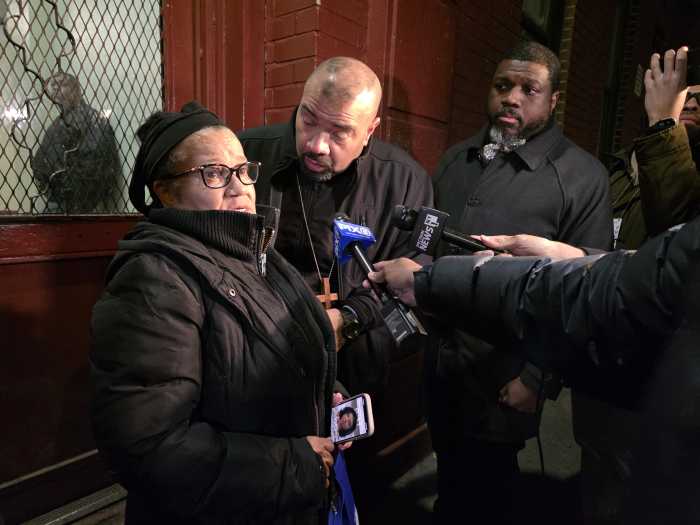Broadway may be heading to a big intermission.
The board of the Actors’ Equity Association, the union representing more than 51,000 professional actors and stage managers working in live theater, has authorized a strike on Broadway, if its bargaining team believes it’s necessary.
The union, currently taking a break from negotiations, which started August 25, plans to resume on October 8 along with a mediator who has the power to suggest, but not impose, solutions.
The current production contract agreement began on December 19, 2022, and expired on September 28, 2025.
The decision would only impact contracts at the 32 theaters that are members of the Broadway League, but could have other implications for actors nationwide.
Equity has asked Broadway League producers to pay 0.21 percent of weekly grosses, in addition to what they currently pay, to fund healthcare.
More than 2,800 actors (including Tony winner Darren Criss, LaTanya Richardson Jackson, Alec Baldwin, Brooke Shields, and Adam Lambert) and stage managers who work on Broadway, recently signed a letter supporting the union in its negotiations to build “a safer, more sustainable and healthier Broadway.”
“The work is intense, the schedules are grueling, and we show up with extraordinary skill, passion, and commitment,” the open letter says. “Now we’re asking you to show up for us.”
They are calling for Broadway shows to “pivot toward humane scheduling, including providing appropriate paid time off” as well as paying their “fair share toward our health insurance.”
The Broadway League in a written statement said they “always prefer to negotiate with our union partners at the bargaining table rather than in the press.” But they indicated they hope to reach an agreement.
“We look forward to reaching a fair agreement through good faith negotiations that benefits both sides and sustains Broadway as a destination for millions of people from around the world,” the Broadway League added.
If Broadway actors go from performing to walking the pavement, this would be the first major Broadway actor strike since1968 impacting ongoing shows – and essentially shutting down Broadway.
There have been smaller strikes, including one that started last February and lasted eight months over development contracts for productions that hadn’t taken the stage yet.
Strikes by musicians and stagehands, represented by the International Alliance of Theatrical Stage Employees or IATSE, impacted shows in the early 2000s.
Actors’ Equity staged a rally in Times Square on August 20, before negotiations started, seeking to win support and attract attention to issues.
“Every working person deserves a fair deal at work. We need reasonable schedules, protection when we get hurt,” Equity President Brooke Shields said at the rally. “We need safer staffing practices. We need a fair share money going into our health insurance.”
The Hollywood Reporter indicated, as part of the existing Broadway contract, Equity obtained salary increases, better paid sick leave benefits, along with a decrease in weekly rehearsal hours after a show opens and an additional personal day off.
The major sticking point appears to be payments to Equity’s healthcare fund, which provides health insurance for actors and stage managers nationwide.
Theaters and producers, whichever is the employer, across the country pay into that fund, based on hours that actors work.
“Broadway doesn’t pay in at the same rate as smaller theaters,” an Equity spokesman said. “We’re trying to bring Broadway producers to a level where they pay their fair share.”
Although Equity is a national union, most Equity members, or nearly 31,000, are in the Eastern region, which in 2024 generated 187,208 work weeks, or 68.9% of the total, down 0.8% from188,706 the previous season.
Eastern Region earnings, including Broadway, represented 84.0% of national earnings, generating $400,163,200 with Broadway income comprising about 41.9% of national earnings, according to an Equity report.
Of the money earned in the Eastern Region, however, $200,689,173 or nearly half (49.8%) was earned in non-Broadway employment at a far larger number of theaters in 2023–24, but Broadway’s small number of theaters still accounted for nearly half of that.
Union representatives are going door to door at Broadway stage doors, distributing strike pledge cards to actors and stage managers, indicating the Equity board approved a strike if the bargaining team feels it is necessary.
The actors and stage managers are being asked if they would pledge to strike, if the bargaining team calls for a work stoppage.
There would not need to be a membership vote to strike, but if the vast majority indicate they would oppose a strike, that could be taken into account.
After more than 1,000, however, signed an open letter supporting the union, it appears unlikely that a strike, if it is called, would face huge opposition at least initially.
The union, which recently negotiated an Off Broadway contract that improved benefits and wages, is now focusing on the Broadway contract, which expired.
“If you’re in a small theater in Nantucket, South Carolina or Kansas, you’re paying your share,” an Equity spokesman said of the healthcare fund. “Disney and others don’t pay that rate. The health fund is in trouble and premiums for the Affordable Care Act may double next year.”
As Equity sees it, Broadway, based on its scale, should be paying more into healthcare funds at a time when healthcare has become more costly.
“The money set aside by Broadway, if it was comparable to other theaters, would stabilize the fund,” the Equity spokesman said. “Right now it’s more like the rest of the country is subsidizing Broadway.”
The Equity League Pension and Health Trust Funds were created after a 13-day strike which closed all Broadway theatres in1960.
Healthcare has become a major issue for many in the arts, including musicians, as it increasingly has become a crucial part of contract negotiations.
“This is as much a kitchen table issue as a bargaining table issue,” the Equity spokesman said. “Healthcare increasingly is becoming an issue people think and care about.”





































